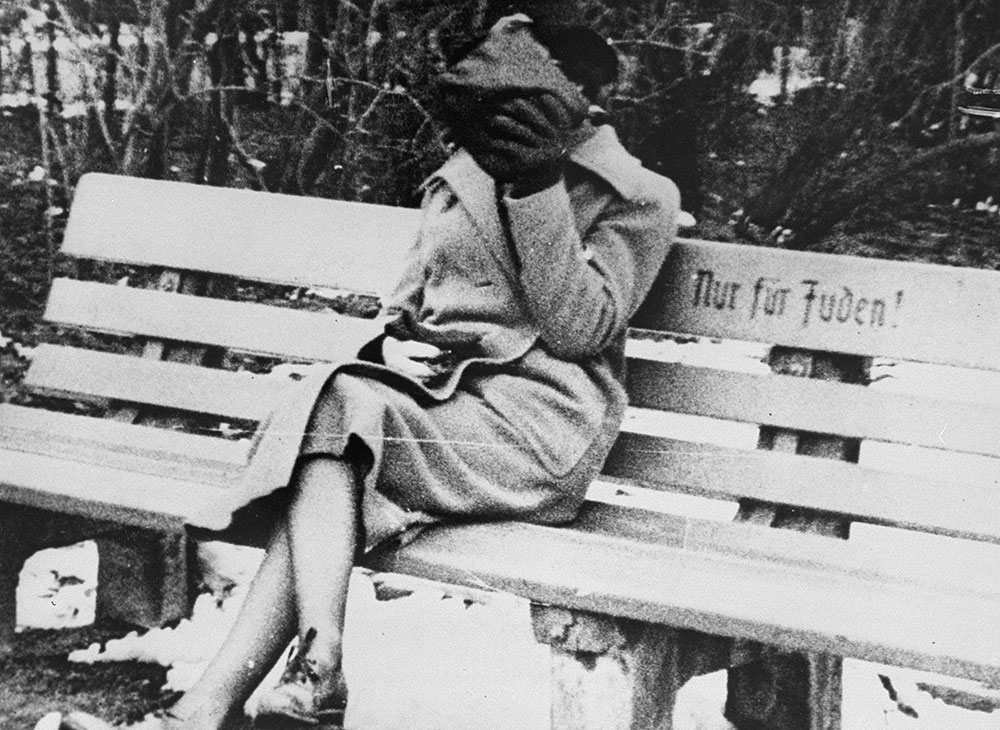Voices on Antisemitism features a broad range of perspectives about antisemitism and hatred. This podcast featured dozens of guests over its ten-year run.
-
Aomar Boum
July 8, 2013
Aomar Boum returned to his native Morocco to study the trend of rising antisemitism there. He conducted interviews with four generations of Muslim Moroccans about their feelings toward Jews. What he found is a noticeable shift toward less interaction and greater hostility.
-
Arnon Goldfinger
June 6, 2013
After his grandmother’s death, Arnon Goldfinger stumbled upon evidence of a long-term friendship between his Jewish grandparents and a Nazi officer. In his documentary The Flat, he tries to make sense of this relationship, exploring how silence resides in both victims and perpetrators, and how, sometimes, it can shape a family history.
-
Alex Haslam
May 2, 2013
Since the Holocaust, social psychologists have asked: Why do people succumb to evil? Theories point to peer pressure and the power of conformity. But Alex Haslam and Steve Reicher reject the idea that people become automatons in a group. Their mock-prison study reveals something more complex about the ways individuals sign on to a brutal agenda.
-
Pardeep Kaleka
April 4, 2013
In the wake of his father's murder by a white supremacist at the Sikh Temple of Wisconsin, Pardeep Kaleka has become a powerful voice against hate crime and violence. Kaleka helped found the organization Serve 2 Unite, which brings together young people from different religious and cultural backgrounds.
-
Stephen Mills
March 7, 2013
In 2005, Stephen Mills created a dance based on the life of Holocaust survivor Naomi Warren. The work would grow into a community-wide endeavor known as Light / The Holocaust & Humanity Project. A collaboration of artists, institutions, and educators, the work has had far-reaching effects on both audiences and creators.
-
Hasan Sarbakhshian and Parvaneh Vahidmanesh
February 7, 2013
Hasan Sarbakhshian and Parvaneh Vahidmanesh gathered stories and photographs from Iran's dwindling Jewish population for their book Iranian Jews. The effort would eventually cause them to flee Iran, their homeland, for the United States.
-
Kathleen Blee
January 3, 2013
Prof. Kathleen Blee has written several books about racism and the Ku Klux Klan. Blee looks in particular at ways the KKK was able to infiltrate mainstream America in the 1920s, by focusing its membership efforts on moderates, not extremists—a strategy repeated by the Nazis shortly thereafter.
-
Rita Jahanforuz
December 6, 2012
Iranian-born Rita Jahanforuz is one of the biggest pop stars in Israel. With the release of her recent album, sung almost entirely in her native Farsi, Rita is developing a fan base in Iran as well, despite the fact that her music is banned there. Although she does not consider herself a political person, Rita is proof that individuals can challenge a system of state-sponsored antisemitism by reaching across cultural boundaries.
-
Edward T. Linenthal
November 1, 2012
Edward Linenthal believes memorials serve a complex and important role in society, to help us mourn and remember, but also to encourage a dynamic engagement with history.
-
Colbert I. King
October 4, 2012
Pulitzer Prize-winning columnist Colbert King has a reputation for direct and plainspoken commentaries. In a recent column, King expressed frustration with what he calls the "tepid" international response to state-sponsored antisemitism in Iran.

